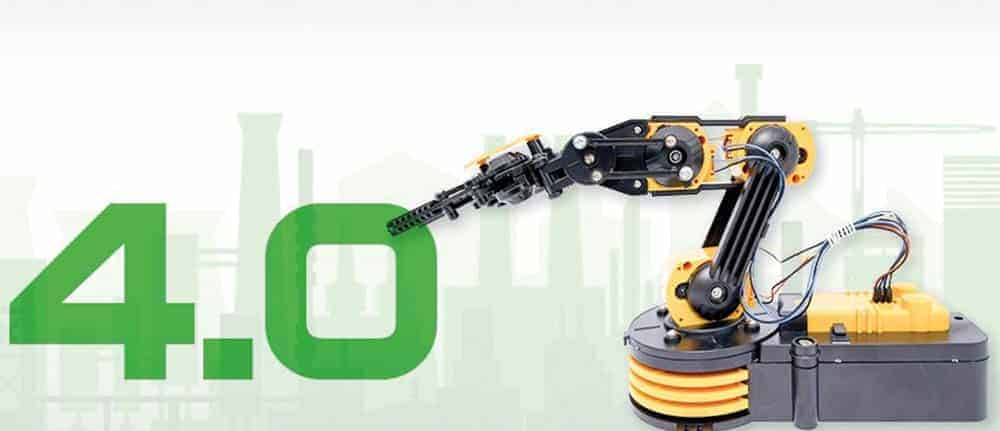Tangible orientation aid: Identifying and realizing potentials


There are terms that seem to be ubiquitous at the moment. Although it is anything but clearly defined what exactly might be meant by them. As the most prominent example, the term "Industry 4.0" is probably right at the top of the ranking without question.
People are wildly speculating, forecasting and in some cases almost fantasizing about what could and will be in the future. And opinions on the subject of Industry 4.0 are also extremely divergent.
The variation of various headlines ranges from "Digitalization creates around 1.5 million new jobs" to "Industry 4.0 kills five million jobs". And yes, the same topic is really meant here.
So this fourth industrial revolution holds a wide range of opportunities - but also countless risks! Industry 4.0 is essentially about adding value to products in a smart factory.
This smart production also encompasses the entire supply chain as well as all horizontal value creation processes from development through production to utilization. The current focus is on retrofitting existing manufacturing facilities in order to make machines and systems that are already installed Industrie 4.0-capable, often with relatively little effort.
But that alone would be far too short-sighted. Digitization is opening up new applications in all industrial sectors: The connection of people, machines and data makes the value chain more transparent and thus also shorter.
It is made possible for everyone involved to obtain and use existing information. Decision-making can take place before a product has passed through the complete chain. This speeds up the overall process and enables companies to optimize their value creation as well as outsourcing and other cost-saving measures.
However, one of the most challenging questions is how companies can evolve their existing business model and establish new successful business models. Companies need to understand how to align their business activities to the transformation and determine which skills, roles, leaders and teams are needed.
Understanding business models and their technical and commercial implementation is therefore essential for successfully mastering digitization. Small and medium-sized enterprises in particular are uncertain about how to deal with issues relating to the data and platform economy and how to classify new data-based business models.
Developments in the topic of Industry 4.0 show that the topic of the platform economy is taking on an increasingly important role. Digital platforms will become the dominant market architecture of our time and the main driver of the economy in the coming years.
According to a study by Eco, the German Internet Industry Association, and Arthur D. Little, industrial IoT revenues in Germany will grow by around 19 percent annually until 2022. They are expected to more than double to 16.8 billion euros by 2022 and thus remain one of the fastest-growing fields in the industry.
In addition to the internal view, the focus is also on overarching aspects of interaction within and between different ecosystems.
The path of Industrie 4.0 has not yet been fully traveled; that it is the right path can hardly be doubted. To address this development and the questions it raises, Plattform Industrie 4.0 has established the working group "Digital Business Models in Industry 4.0".
Based on the established application scenarios of the platform as well as supplementary research, fundamental mechanisms of digital ecosystems are analyzed from a microeconomic point of view and, as a result, the existing, strongly technology-centered discussion of the scenarios is expanded to include a business dimension.






